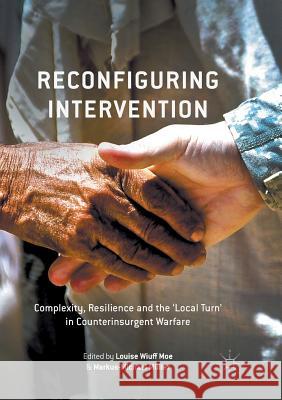Reconfiguring Intervention: Complexity, Resilience and the 'Local Turn' in Counterinsurgent Warfare » książka
topmenu
Reconfiguring Intervention: Complexity, Resilience and the 'Local Turn' in Counterinsurgent Warfare
ISBN-13: 9781349954681 / Angielski / Miękka / 2018 / 229 str.
Kategorie BISAC:
Wydawca:
Palgrave MacMillan
Język:
Angielski
ISBN-13:
9781349954681
Rok wydania:
2018
Wydanie:
Softcover Repri
Ilość stron:
229
Waga:
0.30 kg
Wymiary:
21.01 x 14.81 x 1.32
Oprawa:
Miękka
Wolumenów:
01
Dodatkowe informacje:
Wydanie ilustrowane











